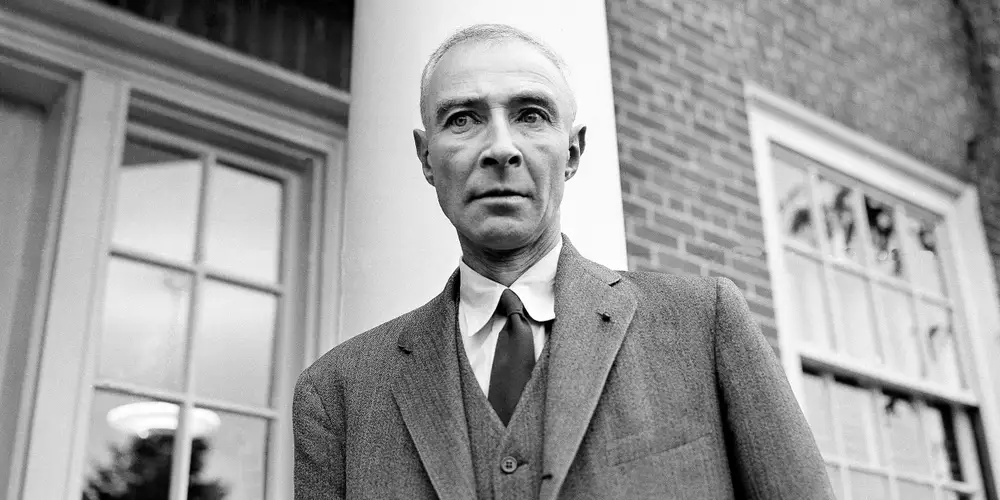The recent release of Christopher Nolan’s film “Oppenheimer” has reignited public interest in the enigmatic figure of J. Robert Oppenheimer, the brilliant physicist who played a pivotal role in developing the atomic bomb during World War II. This article delves into the real Oppenheimer, separating historical fact from potential cinematic interpretations.
A Prodigy Emerges: Early Life and Education
Born in 1904 in New York City, J. Robert Oppenheimer displayed a precocious intellect from a young age. He excelled in mathematics and science, graduating from Harvard University with a degree in chemistry in 1925. Driven by a thirst for knowledge, he continued his studies at the University of Cambridge under the renowned physicist P.M.S. Blackett. It was during this period that Oppenheimer developed his interest in theoretical physics, a field that would become his lifelong pursuit.
A Collaborative Spirit: The Manhattan Project
In 1939, with the dark clouds of war gathering over Europe, Oppenheimer became involved in a top-secret project initiated by the United States government – the Manhattan Project. The aim of this project was to develop the atomic bomb, a weapon of unprecedented destructive power, before Nazi Germany could do the same.
Oppenheimer’s appointment as the scientific director of the project reflected his exceptional reputation as a theoretical physicist and his proven ability to collaborate with a diverse team of scientists from various disciplines. Despite lacking prior experience in weapon development, Oppenheimer’s leadership, intellect, and ability to inspire his colleagues proved invaluable to the project’s success.
The Birth of the Atomic Age: The Trinity Test and Hiroshima
On July 16, 1945, in the desert of New Mexico, the first atomic bomb was detonated in a test codenamed “Trinity.” The immense power unleashed in that test forever altered the course of history. Shortly thereafter, on August 6 and 9, 1945, atomic bombs were dropped on the Japanese cities of Hiroshima and Nagasaki, hastening the end of World War II but ushering in the nuclear age.
A Legacy of Power and Moral Complexity
J. Robert Oppenheimer’s legacy is intertwined with the creation of the atomic bomb. He became known as the “father of the atomic bomb,” a title that came with both immense respect and heavy moral burdens.
After the war, Oppenheimer expressed regret for the devastating consequences of the atomic bomb, advocating for international control of nuclear weapons. He became a vocal critic of the nuclear arms race, leading to a public rift with the U.S. government and the stripping of his security clearance in 1954.
Beyond the Bomb: A Renowned Physicist
Despite the controversy surrounding the atomic bomb, Oppenheimer’s contributions to physics extend far beyond this single project. He made significant advancements in our understanding of quantum mechanics, black holes, and the nature of matter itself. He also played a crucial role in establishing the United States as a leader in scientific research during the post-war period.
J. Robert Oppenheimer: A Man of Contradictions
J. Robert Oppenheimer was a complex and multifaceted individual. He was a brilliant physicist, a captivating leader, and a man deeply conflicted by the power he helped unleash. While “Oppenheimer” the movie will undoubtedly offer its own interpretation of this historical figure, understanding the real Oppenheimer offers a deeper perspective on this pivotal moment in human history.
Facts Not Covered in the Movie (Possible Spoilers):
- The film may not delve deeply into Oppenheimer’s personal life, including his marriage and children.
- The extent of his collaboration with the Soviets during the Manhattan Project might be a point of focus in the movie, but the historical details remain a topic of debate.
- The film may portray his post-war activism regarding nuclear weapons, but the full complexity of his views and actions might be simplified for cinematic purposes.
Further Exploration:
This article has provided a brief overview of J. Robert Oppenheimer’s life and accomplishments. For those interested in learning more, here are some resources:
- “American Prometheus: The Triumph and Tragedy of J. Robert Oppenheimer” by Kai Bird and Martin J. Sherwin
- “Oppenheimer” by Richard Rhodes
- National Atomic Testing Museum: https://www.atomicmuseum.vegas/
- J. Robert Oppenheimer Memorial: https://nsrc.lanl.gov/oppenheimer
